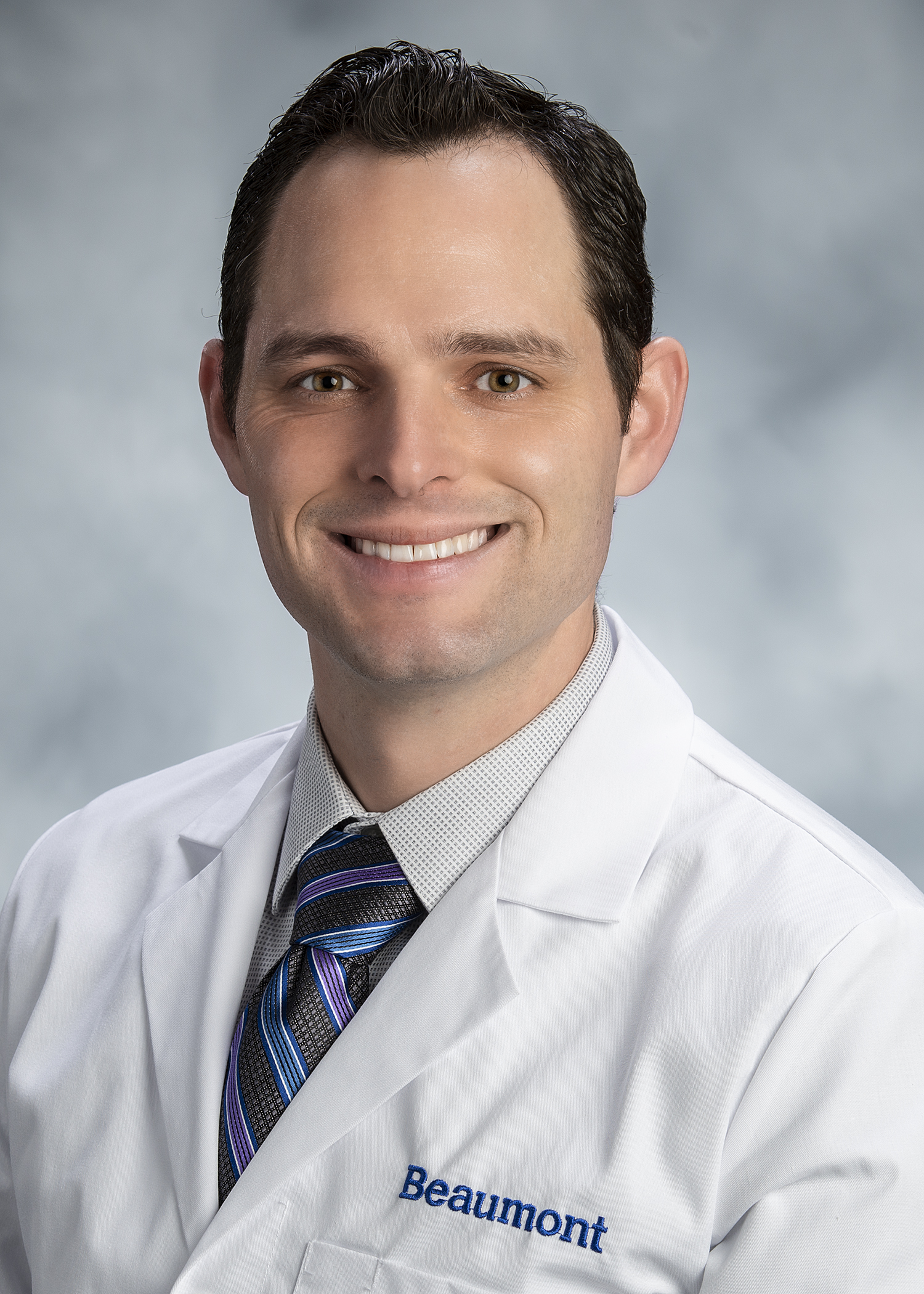As
a 15-year-old sitting in the hospital with a torn ACL, LCL, meniscus and more
from a football injury, a young Jonathan Lezotte would have said being a
surgeon wasn’t for him — especially
when he heard his surgeon say he woke up at 4 a.m. to get to work every day.

Three
short years later, he changed his mind and decided to go into the medical
field. What drew him to the profession?
“Maybe
it sounds cliché to say, but the ability to save a life,” he said. "I
figure waking up early is a small price to pay for the reward.”
Dr.
Lezotte practices at Corewell Health’s Beaumont
Hospital Troy in general surgery, trauma surgery and critical care. He also
helped launch a residency program last July —
taking on residents from another institution as an outside rotation —
along with partners Drs. Jenna Overly, Peter Perakis and David Barbat.
Some
people in the hospital were hesitant to launch the residency program at first because
surgical physician assistants traditionally did a lot of the work residents
were coming in to do. What was their place going to be now?
Instead
of creating a rift between the groups, Dr. Lezotte combined them. PAs assist
with robotic cases, which they have a lot of experience with, while
residents learn the actual steps of the operation and are a resource to the
PAs. With the shared work, patient care has been expedited and
patients have a better experience.
“You
have to work well as a team for the patient to have the best possible
outcomes,” he said.
Dr. Lezotte hasn’t had
an easy journey to get to where he’s at today, though. The COVID-19 pandemic started during his
intensive care unit fellowship at a Detroit hospital, one of the nation’s virus
epicenters.
His
unit was converted to a 75% COVID unit almost instantly and their call
schedules doubled due to lack of staff, he said.
“It
was awful,” Dr. Lezotte said, but “in hindsight, it was probably the best time
to do a fellowship.” The fellows were getting to work with ventilators in ways
they normally wouldn’t, as every COVID patient was considered complex.
"It
was like the Wild West, but at the same time an incredible learning experience
that you probably would never get again,” he said.
In
September 2020, he joined the Troy Medical Staff only to have his first surgery
be a very complex patient who needed multiple reoperations, reinterventions,
ICU admissions and prolonged hospital stay. It made Dr. Lezotte question if he
was “cut out” for health care.
"You're
hoping your first operation is going to be a slam dunk, and this was not the
case,” he said.
Thankfully
he stuck it out and now uses his experiences to work with surgery residents.
It’s rewarding helping them through their own trials and tribulations. He helps
identify what they’re struggling with in an operation, coaches them through it,
then a month or two later gets to watch them succeed.
And
how’s he feeling about his own choice to go into the medical field after eight
years of practice?
“I
love what I do,” he said. “There's some challenges here and there, but I
couldn't do any other job.”